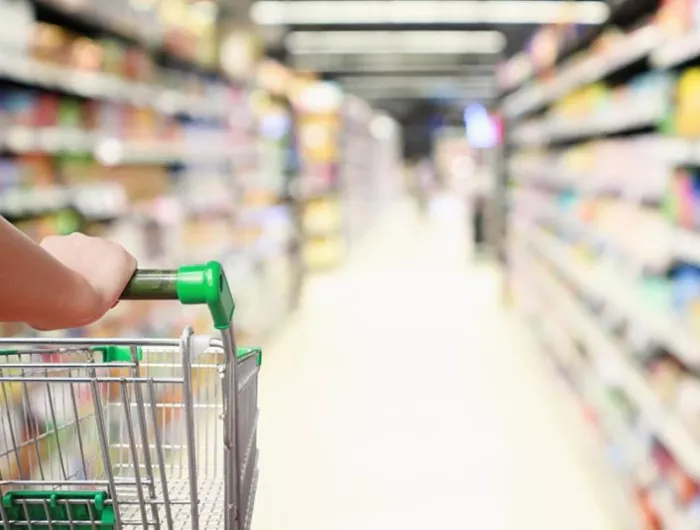Why the Kroger-Albertsons merger is bad news for accessing healthy food

Piman Khrutmuang - stock.adobe.com
The proposed merger would create a grocery giant that would control 22 percent of the food retail market
This past October, Kroger (the U.S.’s largest grocery chain) announced plans to purchase Albertsons (the second largest grocery chain). The proposed merger would create a grocery giant that would control 22 percent of the food retail market. Should this merger go forward, just two companies (Kroger-Albertsons and Walmart) would control over half of the food retail market. The Center for Science in the Public Interest is calling on the Federal Trade Commission to block the merger to protect competition and consumers. The Kroger-Albertsons merger would create a food retail environment with fewer stores, higher food prices, and fewer choices, ultimately reducing healthy food access.
The Kroger-Albertsons merger means fewer grocery stores:
We know that living far away from a full-service grocery store makes it harder to access a nutritious diet, especially for people experiencing poverty. Almost forty million Americans already live in areas that have low incomes and low food access. As grocery chains have merged and competition has decreased, there has been a marked decrease in the number of grocery stores. Black and Latine communities already have less access to healthy food retailers, and the proposed merger is likely to have a greater impact in areas where food access is already limited, potentially worsening inequities.
The Kroger-Albertsons merger means higher prices:
When grocery chains don’t have adequate competition, they can raise prices without losing customers. Consolidation in the grocery market, including from mergers and acquisitions, has been associated with increased grocery prices in highly concentrated markets. Already historically high food prices are keeping Americans from accessing enough food and healthy food. An increase in the price of groceries driven by the proposed merger is likely to make accessing healthy, affordable foods even harder.
The Kroger-Albertsons merger means fewer choices:
The proposed merger would not be the first anticompetitive practice in the grocery industry. Grocery stores accept billions of dollars in payments from food and beverage companies to place and promote their products in prominent store locations, rigging the supermarket such that ultra-processed, unhealthy items dominate the fronts of stores, ends of aisles, and checkout areas - influencing what we purchase and eat. In 2021, CSPI asked the FTC to investigate food retailer and manufacturer marketing practices, including slotting fees and “category captain” arrangements. Since then, CSPI filed a public comment on how supply chain disruptions have further decreased competition and consumer choice in grocery stores. The proposed merger would only exacerbate the anti-competitive nature of those practices as the combined company’s buying power grows larger, leading to less bargaining power for smaller food companies and farmers and fewer choices for consumers.
Taking action:
In addition to outlining our concerns in a letter to the FTC, we have joined the Stop the Merger coalition, led by local chapters of the United Food and Commercial Workers and other labor and economic justice organizations concerned with job losses, higher food prices, and negative impacts on farmers and suppliers resulting from the merger. Join us and let the FTC know that profits and dividends should not outweigh the health of our families and communities.

